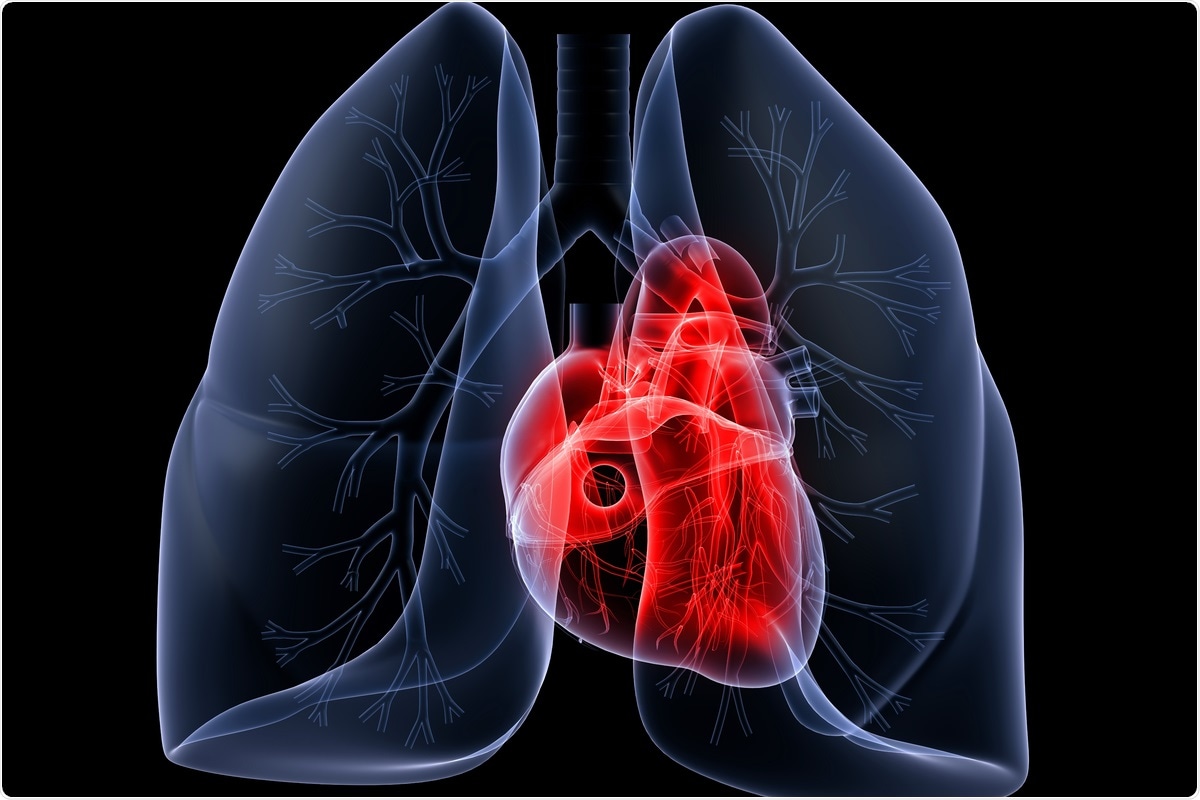Incidence of cardiometabolic and pulmonary events in UK has lowered due to COVID-19
Caused by severe acute respiratory syndrome coronavirus 2 (SARS-CoV-2) infection, coronavirus disease 2019 (COVID-19) is speculated to be involved in various pulmonary and cardiometabolic conditions. A team of researchers from the University of Oxford, the London School of Hygiene and Tropical Medicine and other institutions recently analyzed extensive data collected by NHS England to reveal any association between SARS-CoV-2 infection and cardiometabolic or respiratory events.
Interestingly, the group noted a drop in the incidence of such events in the non-COVID-19 population, but a high incidence of COVID-19 among patients with events. The team has recently released their findings on the medRxiv* preprint server.

How was the analysis performed?
NHS England has elected to publish extensive patient records for research and analysis in light of the pandemic on the OpenSAFELY server, which now contains records for over seventeen million adult patients. The group utilized this entire dataset and took into account information regarding death, the development of deep vein thrombosis, ischaemic stroke, pulmonary embolism, heart failure, myocardial infarction, diabetic ketoacidosis, or acute kidney injury for each month. The dataset was split into three categories: community patients with COVID-19, hospitalized patients with COVID-19, and those without COVID-19.
What were the results?
All of the above described cardiometabolic and pulmonary conditions and outcomes were noted to decrease since the start of the pandemic, except for death and ketoacidosis. Deaths were 73.4% higher in the month on April 2020 than the previous year, demonstrating the devastating effect of the SARS-CoV-2 virus. However, other outcomes lessened by between 5.9 and 40% in the total population.
In April 2020, 0.14% of the total population included in this study was hospitalized, which had risen to 0.18% by October 2020. Given this small percentage, it is clear that cardiometabolic and pulmonary events are massively overrepresented in COVID-19 patients, as up to a third of events occurred in the hospitalized COVID-19 population.
Not all of the hospitalized population will have been admitted due to COVID-19, and a patient may have obtained the infection at any point. Many patients may have acquired COVID-19 while in hospital due to the cardiometabolic and pulmonary events analyzed in this study. Alternatively, they may be attending hospital for another complaint, subsequently contract COVID-19, and then develop these events.
The available data did not allow the authors to fully ascertain the order of events, making distinguishing those with events resulting from COVID-19 hard to differentiate from those with events that then happen to have COVID-19, whether coincidentally or in association with compounding factors.
In support of the findings' accuracy, however, the authors point to a previously reported study that utilized hospital records and noted a 40% drop in the incidence of acute coronary syndromes during the early months of the pandemic. This work found only a 28.3% reduction in the same condition, though it included data from the community and not only those hospitalized.
What factors may have influenced the observation?
The authors suggest several possible scenarios that could explain the observed drop in the incidence of pulmonary and cardiometabolic events since the wide-spread emergence of COVID-19. These include reluctance to seek treatment during the pandemic and lessened exposure to risk factors such as air pollution or demanding physical activity.
They also note that competing risk of death is an important factor, as many of those that may have suffered from these events are also in the high-risk group for COVID-19. It is highly likely that a large portion of those that died with COVID-19 would have gone on to have one of the events investigated in this study at some point.
Further analysis of more detailed datasets covering specific portions of the population would allow researchers to better establish the order of events and whether any true causal relationship exists.
*Important Notice
medRxiv publishes preliminary scientific reports that are not peer-reviewed and, therefore, should not be regarded as conclusive, guide clinical practice/health-related behavior, or treated as established information.
- Walker, A. et al. (2021) Changes in the rate of cardiometabolic and pulmonary events during the COVID-19 pandemic. medRxiv preprint server. doi: https://doi.org/10.1101/2021.02.17.21251812, https://www.medrxiv.org/content/10.1101/2021.02.17.21251812v1
Posted in: Medical Science News | Medical Research News | Disease/Infection News | Healthcare News
Tags: Acute Kidney Injury, Air Pollution, Cardiometabolic, Coronavirus, Coronavirus Disease COVID-19, Deep Vein Thrombosis, Diabetic Ketoacidosis, Embolism, Heart, Heart Failure, Hospital, Hygiene, Ischaemic Stroke, Kidney, Medicine, Myocardial Infarction, Pandemic, Physical Activity, Pollution, Pulmonary Embolism, Research, Respiratory, SARS, SARS-CoV-2, Severe Acute Respiratory, Severe Acute Respiratory Syndrome, Stroke, Syndrome, Thrombosis, Virus

Written by
Michael Greenwood
Michael graduated from Manchester Metropolitan University with a B.Sc. in Chemistry in 2014, where he majored in organic, inorganic, physical and analytical chemistry. He is currently completing a Ph.D. on the design and production of gold nanoparticles able to act as multimodal anticancer agents, being both drug delivery platforms and radiation dose enhancers.
Source: Read Full Article



